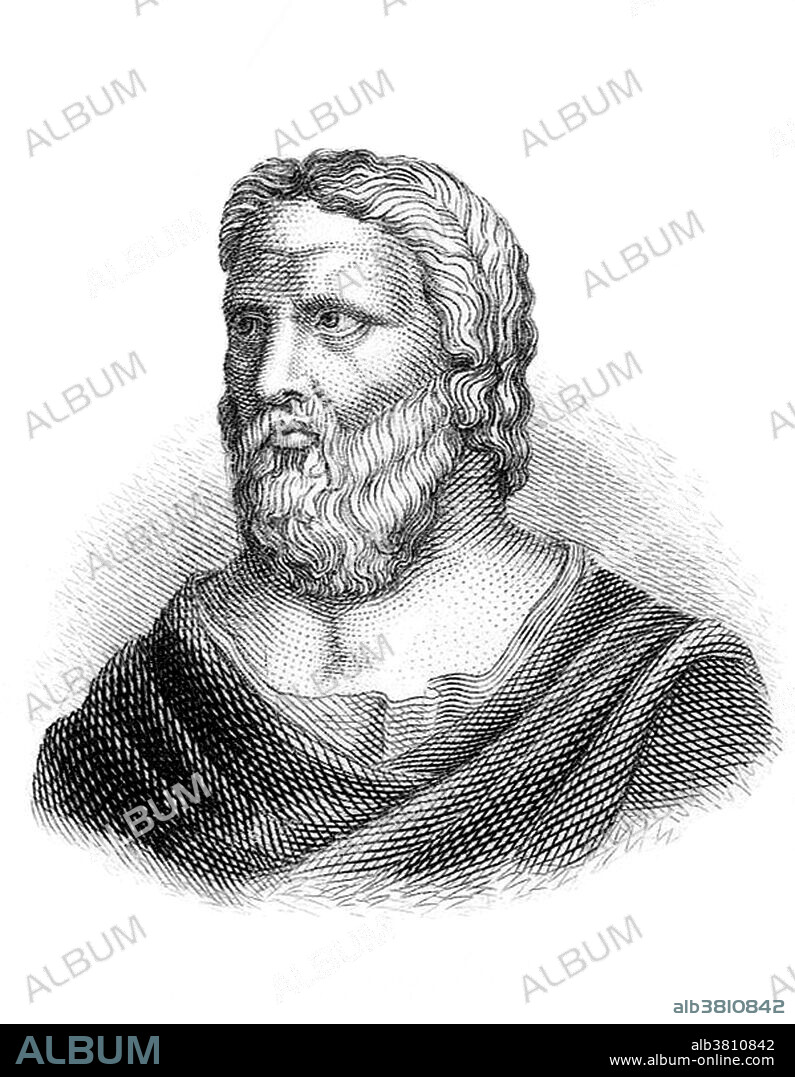alb3810842
Heraclitus of Ephesus, Ancient Greek Philosopher

|
Add to another lightbox |
|
Add to another lightbox |



Title:
Heraclitus of Ephesus, Ancient Greek Philosopher
Caption:
Heraclitus of Ephesus (535 - 475 BC) was a pre-Socratic Greek philosopher. Little is known about his early life and education, but he regarded himself as self-taught and a pioneer of wisdom. He was called "The Obscure" and the "Weeping Philosopher". He is famous for his insistence on ever-present change in the universe, as stated in the famous saying, "No man ever steps in the same river twice". He believed in the unity of opposites, stating that "the path up and down are one and the same", all existing entities being characterized by pairs of contrary properties. Like most pre-Socratics, his writings survive only in fragments quoted by other authors. His life as a philosopher was interrupted by dropsy. The physicians he consulted were unable to prescribe a cure. He treated himself with a liniment of cow manure and baking in the sun, believing that this method would remove the fluid. After a day of treatment he died and was interred in the marketplace. Engraving by J.W. Cook, 1825.
Credit:
Album / NYPL/Science Source
Releases:
Model: No - Property: No
Rights questions?
Rights questions?
Image size:
3259 x 4200 px | 39.2 MB
Print size:
27.6 x 35.6 cm | 10.9 x 14.0 in (300 dpi)
Keywords:
5TH BCE • 5TH CENTURY B. C. • 5TH-CENTURY BC • 6TH CENTURY BC • 6TH CENTURY BCE • ANCIENT GREEK • ANCIENT • ANTIQUITY • ARTWORK • AUTODIDACT = SELF-TAUGHT • AUTODIDACT • BW • CELEBRITIES • CELEBRITY • CLASSICAL • DRAWING • ENGRAVING • FAMOUS PEOPLE • FAMOUS • FIFTH CENTURY B. C. • FIFTH CENTURY BC • FIGURE • GREEK • HERACLITUS OF EPHESUS • HERACLITUS • HISTORIC • HISTORICAL • HISTORY • ILLUSTRATION • ILLUSTRATIONS • IMPORTANT • MALE • MAN • MEN • NOTABLE • PEOPLE • PERSON • PERSONALITIES • PERSONALITY • PHILOSOPHER • PHILOSOPHY • PIONEER OF WISDOM • PORTRAIT • POTRAIT • PRE-SOCRATIC • SELF-TAUGHT • WELL-KNOWN • WESTERN PHILOSOPHY
 Pinterest
Pinterest Twitter
Twitter Facebook
Facebook Copy link
Copy link Email
Email

